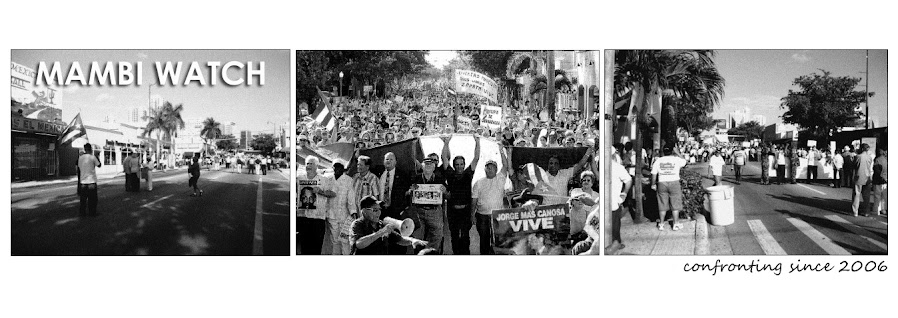Part Two of the Cuba Puzzle, written by Frances Robles and Wilfredo Cancio Isla, is perhaps the best of all parts. This piece best represents the effort of what Anders Gyllenhaal (editor of the Cuba Puzzle) describes as a "10-day, 1,200-mile journey across the island" by the Miami Herald team.
This part provides many excellent descriptions about the current economic hardships in Cuba, which are indisputable and a sobering reminder of Cuba's rampant poverty. This piece also reminded me of the excellent 5-part journal by Carlos Frias, sports writer for the the Palm Beach Post. Frias' description of the unfortunate in Cuba, during his first trip to the island in August 2006, were vivid and powerfully sincere.
Cuba's economy has been written about extensively, by many organizations, so there is little to say about it. It's been made evident that if Cuba doesn't recover from its poor conditions, any future Cuban administration shall continue to face a growing social crisis.
But, many would confuse such dire conditions as a justifiable reason to make things worse. Despite economic frustrations by Cubans, many still are opposed to the US embargo. According to the latest poll inside Cuba (Havana and Santiago only) by the Gallup Organization, there was overwhelming support for the US as an "ideal partner" in trade. 44% percent of urban Cubans chose the US, with China and Venezuela falling right behind with a meager 17 and 15 percent.
Speaking of trade, the Cuba Puzzle also includes an extra article by Martha Brannigan reporting about American agricultural trade with Cuba. Despite US exports to Cuba reaching beyond $300 million annually, Brannigan writes that "[b]y most accounts, exports of agricultural goods will remain a fraction of what they could be so long as US restrictions remain." US rice exporters also support the fact that current trade with Cuba is but a fraction of what it could be. The main obstacles to US agricultural export are reported as working through third-party banks and difficulty in obtaining licenses and cash in advance, all due to US restrictions.
Brannigan also cites the USA Rice Federation saying that Cuba instead looks to Vietnam or China for their rice because the US is seen as "unreliable" due to restrictions on offering credit, unlike other countries.
In 2006, USA Today gave some insight into exactly how big US agricultural trade can grow to without restrictions or the US embargo. Edward Iwata, wrote that "[w]ith no embargo, agricultural officials say, U.S. food exports could grow tenfold."
[Part 4]

No comments:
Post a Comment